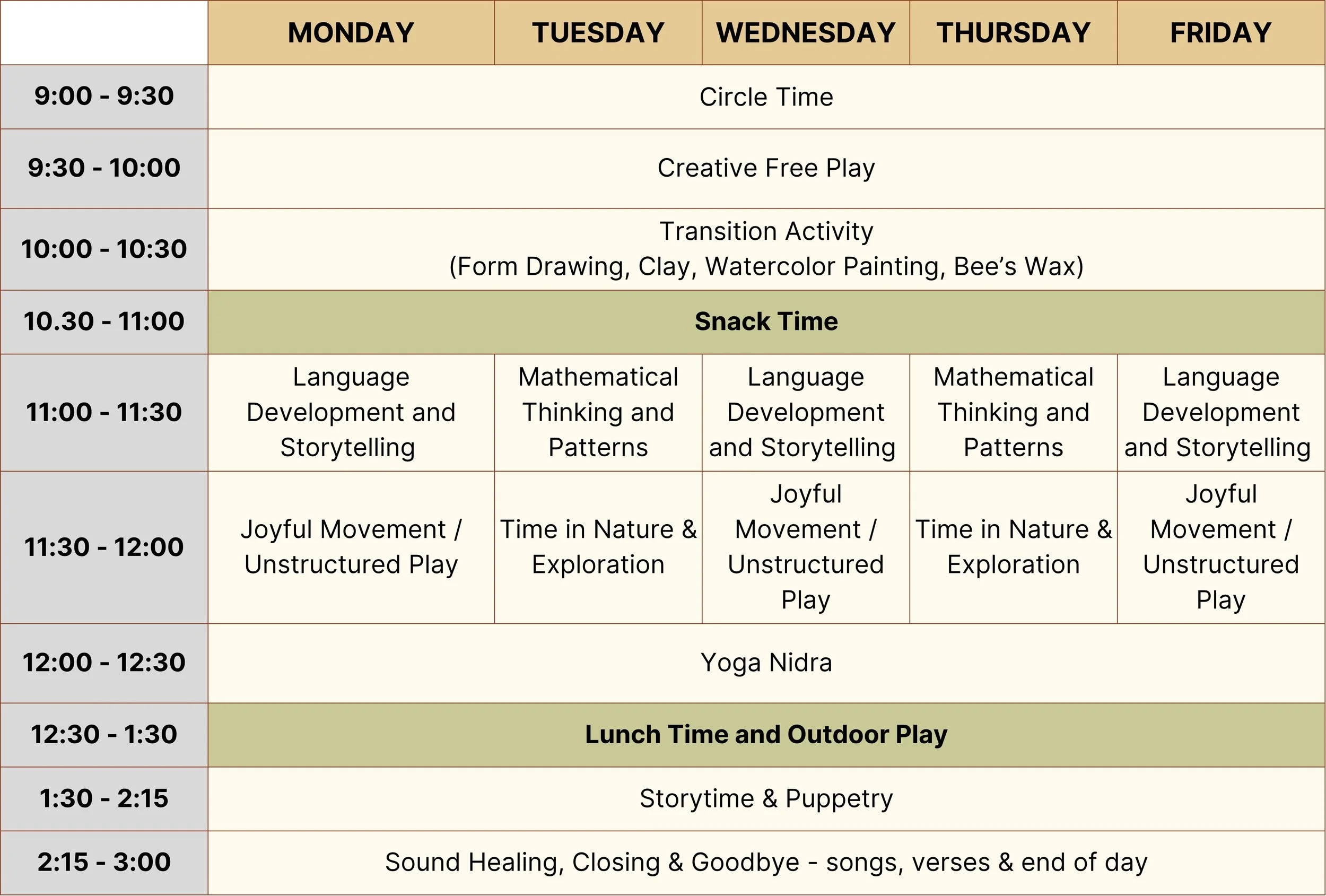Early Learning Class
Ages 4 and 5 years old
By June 2026 your child needs to be 4 to enter Early Learning Class
At Sun School Bali, the Early Learning Class (ELC) provides an experiential education in a warm and nurturing environment.
We welcome children ages 4 to 5 into a mixed-age classroom, where younger and older children learn, play, and grow together. This environment meets the individual child’s needs emotionally, socially, intellectually, and physically. Our program supports social learning, confidence, and developmental readiness.
Families can choose from flexible scheduling options to best suit their child’s needs:
Full-time program: Monday to Friday, 9:00 AM – 3:00 PM
Three-day option: Three full days, 9:00 AM – 3:00 PM
Half-day option: Five half-days, 9:00 AM – 1:30 PM
Each aspect of our curriculum is intentionally woven into the child’s day, supporting their natural curiosity, creativity, and development, while honoring the Sun School ethos of connection, nature, and hands-on exploration.
Through a balanced rhythm of play, movement, rest, and exploration, our program honors the sacredness of childhood. ELC at Sun School Bali fosters imagination and creativity, and gently prepares children for the transition to Class 1.
Timetable
Overview of Classes
Mathematical Thinking & Patterns
Mathematics in the Early Learning Center (ELC) is integrated into daily life, allowing children to engage with numbers and patterns in a natural way rather than learning symbols on a page. They explore math through rhythm, movement, and nature—counting steps, noticing patterns in leaves, sorting materials, and measuring while baking. These hands-on experiences help them develop a strong foundation for mathematical thinking.
Language Development & Storytelling
Language comes alive in the ELC through storytelling, songs, poetry, and conversation, developing the child’s love for language and communication. Storytelling awakens the imagination, helping children explore a world of wonder, imagination and expression. As they engage with tales and puppetry, their vocabulary grows, memory strengthens, and emotional expression expands. These experiences build a foundation for early literacy, allowing language to be felt, lived, and joyfully explored before it is written.
Nature Awareness & Exploration
The natural world is our greatest teacher, offering endless opportunities for discovery and connection. In the ELC, children connect with the Earth through gardening, nature walks, and caring for plants and animals.They feel the warmth of the sun, the coolness of the rain, the texture of soil in their hands, and witness the slow, magical unfolding of life—from seeds sprouting to butterflies emerging. We focus on mindful learning so children deepen their awareness to the natural rhythms of their environment.
These activities foster wonder, curiosity, and patience, encouraging children to observe closely and ask questions. They learn that nature is interconnected—the water that nourishes plants, insects that pollinate flowers, and trees that provide shade. This bond with the natural world helps children develop care and responsibility, creating a foundation for lifelong respect for the Earth.
Daily Rhythm
A strong sense of rhythm brings comfort and supports children to feel secure in the flow of the day, the week, and the seasons.
Predictable routines help them develop an intuitive understanding of time and transitions. Knowing what comes next allows them to settle deeply into each moment with confidence and ease, fostering self-regulation and a positive relationship with the world around them.
Joyful Movement
Movement is essential for young children, helping them develop coordination, balance, strength, and confidence in their bodies. Whether they are climbing trees, running barefoot, jumping, balancing, or engaging in circle games, movement in the ELC is joyful, natural, and developmentally essential. Bead-stringing, weaving, woodworking, and handcrafts strengthen fine motor skills, supporting dexterity, patience, and concentration. Joyful movement builds a strong foundation for later academic learning, as cognitive development is deeply linked to physical movement and sensory experience.

